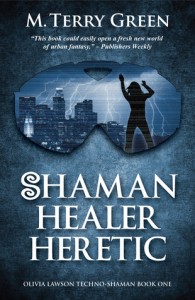 Author, C.E. Wilson sent me an e-copy of Oath of Servitude.
Author, C.E. Wilson sent me an e-copy of Oath of Servitude.
Synopsis from Smashwords:
Teague’s was the charmed life of a popular athlete that came to a crashing halt. Cailin is a pixi learning the price of nonconformity in her rigid clan. She fears the darkness. He is trapped there for all eternity. But when the two of them are thrown together, they begin to discover the light within themselves.
Review:
Oath of Servitude makes an interesting contribution to the paranormal genre. I don’t think I’ve ever read a book based on Pixi, or at least not one intended for anyone over five. I was a little afraid it might come across as super cheesy, but I’m happy to say that isn’t the case. The subject is handled admirably and makes for an enjoyable experience.
The story is a good one. While it focuses primarily on Cailin’s ability to help Teague come to terms with his situation, there is a lot more going on in the background. Most of it I think is intended as a set up for the future books, because there is no resolution even attempted here. You are left wanting to know both what happened in the past and what will happen in the future. I don’t mean this to suggest that you’re left wanting in the sense that something is lacking but that you are left wanting out of interest. There is no doubt goodness to come.
The characters are easy to engage and empathise with, especially Teague. Individually I really liked him and Cailin…together, not so much. I had a hard time reconciling their sizes and never could accept their burgeoning feelings for one another. I honestly think that I would have preferred the story without the romance element, but that is a personal opinion only. I also thought that the whole thing felt rushed, not the writing but the plot. If Teague’s situation was so bad that Owen is willing to call in his last resort, I find it unlikely that Teague’s demeanour would change so dramatically so quickly. Same for Cailin and Teague’s friendship. They have to overcome fear, trauma, mental injury, and more. Could they really have done all of that in a few short weeks? The book is relatively short, so it feels like there is room to expand. Again, this is just a personal opinion here. All-in-all, it is well worth reading by YA fans, not to mention a mere $0.99. I look forward to seeing more of C.E. Wilson’s work.


